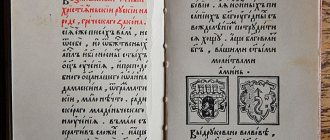What is Great Britain famous for?
Interesting facts about Great Britain allow you to get better acquainted with the culture and traditions of this country:
- Big Ben or Elizabeth Tower is a symbol of London. This name does not refer to the clock itself, but to one of the 5 bells. The tower is an attractive place for tourists.
- Madame Tussauds is another place to visit in London. In it you can see wax figures of many celebrities and famous historical figures. There are branches all over the world, but the main museum is in London.
- Ferris Wheel or London Eye is the tallest wheel in Europe. After visiting the attraction, you can explore the outskirts of London within 40 km. There are 32 cabins on the wheel, which means the number of districts of the city.
- In the Botanical Garden "Eden" you can see plants from all over the world. This is the largest greenhouse in the world. The Eden project consists of 2 covered areas in the form of a dome and an open space with planted plants.
- The famous Loch Ness lake, which is located in Scotland, is known thanks to the legend of the Loch Ness monster. The lake also has picturesque nature.
Education in England for children
Summer camps in England accept children aged 8 to 19 years; they usually open in mid-June and close at the end of August. These camps are mostly organized on the campuses of universities and institutes in England. The minimum stay in the camp is 2 weeks, the maximum is up to 9 weeks.
Summer camps in the UK take into account all aspects of children's recreation and education: residence accommodation, full board meals, English classes, an exciting leisure program and a variety of excursions. Children in the camps are accommodated by age, and during English classes they are further divided into groups in accordance with the level of knowledge of each child - due to this, maximum learning efficiency is achieved. In addition to all this, some camps offer developmental programs based on interests. Children in international camps are looked after by qualified counselors.
Thus, children in camps in England not only have the opportunity to significantly improve their knowledge of the English language, but also expand their horizons, develop their intellect and gain a tangible advantage over their classmates in their knowledge of the most widely spoken language on our planet.
Children in camps in England not only gain a strong and confident knowledge of English, but also broaden their horizons, develop their intellect, completely remove the language barrier, and also gain a serious advantage over their peers in their knowledge of the English language.
Now we will take a closer look at various aspects of children’s stay in summer camps in England
English teaching
For children, such camps offer courses of varying duration and intensity. But they have the same main goal - improving children's English language skills. The obvious advantages of such courses (compared to courses offered in other countries of the world) include English-speaking teachers (native speakers) and a multicultural environment. Communication and communication outside the classroom and even the camp also takes place in English, which significantly enhances the learning effect. As a rule, in summer camps a child makes friends with whom he continues to correspond after leaving the camp - also in English. As you can see, there are plenty of advantages to learning English in UK summer camps.
Recreation and entertainment
English classes in camps usually take place before lunch, and in the afternoon and evening, children are offered an extensive program of leisure and entertainment, which includes sports, recreational activities, and excursions. In terms of sports, children in such camps can engage in swimming, water polo, horse riding, kayaking and canoeing, aerobics, mountain climbing, etc. In addition, the camps organize discos (including those with special effects that are now fashionable), talent shows, theme nights, competitions, quizzes, bowling trips and amusement parks. As a rule, the camp program includes several excursions to historical and cultural attractions of Great Britain: London, Oxford, Cambridge, Birmingham, Canterbury, Bath, etc.
Accommodation for children
Typically, children are provided with accommodation in the residences of boarding schools or universities where camps operate. Housing conditions, as a rule, are represented by bedrooms for 2-4 people with amenities on the floor. Children eat in school and university canteens. Some camps offer accommodation with a host family - accommodation in rooms for 1-2 people and three home-cooked meals a day.
Course fees
Tuition prices depend on the level of the school (university) where the camp is located, its location, the program offered and the time of year. In spring, winter and autumn, prices are cheaper than in summer, but at these times of the year there is less choice of camps. Prices for summer courses start at around £900, but at an elite boarding school (camp) tuition can cost up to £2,300 per week. But in elite camps, despite such a high cost of training and the flow of applicants is quite large, it is therefore advisable to enroll in them several months in advance.
Features of the population and mentality
The population of Great Britain is multinational. Residents have their own British mentality, which is not always clear to other people, but for the British this is all par for the course.
- The people of Wales, Scotland and Northern Ireland are very proud of their origins and roots. And if they are called British or English, it is a great insult to them.
- England has the highest rate of obesity among its population in Europe. This happened due to the rapid proliferation of a large number of snack bars throughout the country and sweet vending machines in establishments. The Kingdom has begun to combat this disease by introducing a tax on foods containing a lot of sugar.
- The British do not like intrusion into their personal space. They allow hugs and kisses only to those closest to them. They exchange greetings with strangers or unfamiliar people and sometimes shake hands.
- Very often on the street you can meet a Briton who wears warm clothes in the warm season. Conversely, in winter, residents can easily wear a T-shirt and shorts.
- Residents of Great Britain go to the pub very often. There they can not only sit with a mug of ale, but also enjoy the atmosphere of the establishment and communication with friends. Their pubs are small, but there are always a lot of people in them.
Londoners prefer Indian cuisine
Incredibly, England and India have a lot in common. This is explained, of course, by the fact that the British government led India for many years, and during this time the peoples managed to adopt various cultural traits from each other. This concerns not only the language and the obvious love of tea, but also the cuisine.
The British do not have a national cuisine as such (except for the full British breakfast and various puddings), but in almost every restaurant in London you can find a dish with Indian origins on the menu .
Some representatives of English youth do not even know that such popular dishes as chicken in tikka massala sauce or in creamy tomato sauce, paneer cutlets with potatoes and spicy gravy are not discoveries of their country at all, but traditional Indian dishes.
Geography
Great Britain is located in the British Isles. It includes 4 countries that are united into one Kingdom: England, Scotland, Northern Ireland and Wales.
- Great Britain is washed by 4 seas (Northern and Irish, Celtic and Hebridean) and the Atlantic Ocean.
- The climate of the Kingdom is greatly influenced by the warm Gulf Stream.
- The highest mountains in Great Britain are in Scotland.
- The Greenwich Observatory is located in London, which is the location of the prime meridian and the starting point of time zones.
- On land, Great Britain borders only with Ireland; all other borders are along the seas and straits.
Culture
Interesting facts about Great Britain can be found on the Internet. The culture of the country has been influenced by many peoples.
- There are about 30 cultural properties in the United Kingdom that are protected by UNESCO.
- In Great Britain you can find many architectural masterpieces (palaces, Big Ben, Tower, Westminster Abbey).
- Great Britain is the birthplace of many famous writers, including Shakespeare, Defoe, Austen, and Carroll.
- The Beatles were founded in Liverpool. She became popular all over the world and influenced the development of pop music. The Kingdom also gave everyone many famous performers and groups (Queen, Pink Floyd, Elton John, Rolling Stones).
- Great Britain is the birthplace of many sports. Golf and rugby originated here.
Story
Great Britain with its history is rich in interesting facts that allow you to delve deeper into the essence of the country and learn about historical events:
- Lecturers at Oxford were not allowed to marry while working at the university. This law was repealed in 1877.
- The British war with Zanzibar ended in 38 minutes. Zanzibar belonged to the territory of the Kingdom. After the death of the Sultan, a coup began in the country. To defend its territories, Great Britain sent its troops there.
- The capital of England, London, was founded by the Romans.
- The Halloween holiday originated in Scotland. For the Celts, it was All Saints' Day. Jack-o'-lanterns were believed to help souls find their way.
- Great Britain has hosted the Olympic Games 3 times. The main venue for the competition was London.
Little known facts
The UK has some features that distinguish it from other countries:
- In Great Britain, all land is in private hands. There are special places and campsites for recreation, for which you need to pay.
- Residents do not have registration in the country. Identification occurs through a bank account and utility payments. Without a bank account, a person will not be able to find housing or get a job.
- The country has no Constitution. All laws, rights and obligations of UK citizens are set out in different documents.
- The Channel Tunnel connects Great Britain to Europe. This is the longest tunnel that runs under water. It is designed for trains. In about 50 minutes. can be reached from Europe to the UK.
Interesting facts about the UK-France Eurotunnel. Channel Tunnel Project, ca. 1960 meant railway and automobile tracks, but ultimately the idea was abandoned - Many museums are free to visit. The person decides how much he will pay for entry, if he wishes.
Science Museum
The museum, which is already more than 150 years old, is stunning in its size: not a single child will have the strength or patience to go around everything, so it is better to immediately decide at the entrance where you will go. And one more thing: it is implied that it would be nice to donate at least £5 to the museum - this is what is written on the piggy bank that the employees hold as they let visitors through the turnstile.
For very young children there is paradise on the “minus first” floor, that is, in the basement: playing with water, lifting weights, blocks, crowing chairs and other joys of learning about the world. There is also a cafe, a children's toilet, a drinking fountain and a large “picnic area” to run around and eat what you brought with you.
On the same floor there is an exhibition “The Secret Life of the House”: telephones and alarms, washing machines and motion sensors - everything is fascinating, visual and interesting. And you can touch everything!
Advertising
And you can even play with some exhibits. For example, you can try to fool the alarm and get to a safe in a dark gallery or get into an apartment through a window.
Children are particularly delighted with the game that shows how the toilet works.
A funny plumber unexpectedly peeking out of the toilet... hanging from the ceiling distracts you from the intense flushing of water.
Boys who love mechanisms and mothers who run the house will be interested in seeing how household appliances have changed over the past 100 years.
Advertising from the 1920s presenting a product of unspeakable luxury for elegant ladies - a refrigerated cabinet
This is what a solarium looked like at the beginning of the 20th century: an advertising poster depicts a mother and baby sunbathing under an ultraviolet lamp
Prototypes of vacuum cleaners
An older child can be immediately taken to the 3rd floor - to the experimental gaming space Launchpad. It is written that this is for children 8-14 years old, but in reality, of course, preschoolers also willingly run there. A lot of interesting experiments, games for everyone - and experiments that the museum staff conducts every hour.
When we were there, a girl in a hijab and a branded T-shirt, with the help of children, launched a “water rocket”:
And here you need to use fans to “swim” on a sailboat from one shore to the other. But this boy decided to wade.
The Second World War
The British Armed Forces participated in the war from its beginning until the very end. The Second World War was a decisive factor in the collapse of the empire.
- During World War II, Elizabeth 2nd worked as a driver and mechanic.
- During the war, England was an ally of the USSR. They fought together against fascism. England helped Soviet soldiers in every possible way.
- After the war, many British colonies separated from the Kingdom and declared their independence. Some of them later united to form the Commonwealth of Nations to maintain economic ties.
- Britain's most powerful force in World War II was its navy.
- During the war and post-war times, industrial productivity in the country fell and the area under cultivation decreased. Great Britain felt the crisis.
Facts about the royal family
The royal family in Great Britain has its own characteristics. They must follow certain rules and behave with dignity in society.
- The Queen does not have a passport, but this does not prevent her from traveling without a document. She visits other countries as a diplomatic mission.
- The Queen owns lands not only of Great Britain, but also of other states that are part of the Commonwealth of Nations. This is approximately 1/6 of the entire territory.
- Queen Elizabeth celebrates 2 birthdays. She was born in April, but ceremonial events usually take place in June.
- In the royal dynasty, parents are prohibited from traveling with their children. This was created so that in the event of a disaster the Kingdom would have heirs.
- Representatives of the royal family are prohibited from signing autographs or taking selfies.
Tower of London
Immediately after entering, they offer audio guides (£4), some in Russian.
To prevent your child, and you yourself, from getting confused in the numerous buildings of the Tower, it is better to take an audio guide - the story is clear, and moving around the territory, like in an adventure game, can captivate the child. Don't miss - immediately to the left after entering the fortress - the former Mint, which was located in the Tower for 500 years, and which Isaac Newton headed for almost 30 years until his death.
The exhibition opened in May of this year, there are many interesting facts, funny games and installations. For example, a video where the minted profiles of Oliver Cromwell and Charles II on coins come to life and discuss views on the monarchy and, of course, quarrel. No textbook will tell you so clearly about the difference between the coins (and reigns) of these two historical characters! In another room, behind a small door, the screams of Mint workers are heard, locked during breakfast in the dining room by their “colleague” James Thornbull - so as not to interfere with the theft of heavy bags of gold guineas. It happened in 1798, the thief was caught in the port of Dover and hanged. The bags are lying right there - you can lift them up and evaluate the recklessness of the attacker.
The most famous part of the Tower - the slender cube of the White Tower - was built at the end of the 11th century. A wooden staircase leads directly to the second floor - just like in ancient times. When the enemy approached, the ladder was removed. Inside there is a lot of armor, weapons, knights - a haven for lovers of the Middle Ages and military history.
There weren’t any amateurs among us, so the interactive room was more fun, where you can try to shoot with a bow (on a simulator), with a cannon (on a computer), and also try to lift a real musket - very heavy!
The queue to the gallery where the royal regalia of different eras and the very crown that Elizabeth II wears at official ceremonies is kept, the line passed quickly, but my son was more impressed by the huge steel doors installed in the vault than the crowns of English monarchs strewn with sapphires, rubies and diamonds along which are transported on a travelator.
The oldest exhibit, an anointing spoon from the 12th century, thanks to some clever person, even survived the destruction of the royal regalia during the times of the Republic and Oliver Cromwell. The courtier kept the valuable item - and a few years later he sold it at a profit to the new king Charles II after the restoration of the monarchy.
Tourists relax at the site of the execution of Tower prisoners
The gift shop sells this paper model for assembly. If everything is done correctly, the rack will stretch and the head will fall into the basket...
Unusual interesting facts
Interesting facts about Great Britain create the first impression of the country and help you learn all the nuances and features.
- The very first subway in the world appeared in London . It included 7 stations.
- Scotland, namely Edinburgh, is the site of the first fire service in the world.
- Many UK residents read newspapers while traveling on the subway. And after reading it, they leave it for other people in the seats.
- The British rarely wash their clothes at home. Mostly they use laundries. It works out cheaper than buying a machine and washing things at home. You can also socialize in the laundries.
- There is no censorship on television. On many channels you can openly express your opinion using obscene language.
London style
You've probably heard about the full English breakfast (fried eggs, beans, toast, mushrooms, tomatoes, bacon). But they don’t eat it every morning, because it takes a lot of time to prepare, so they treat themselves to it on weekends. On weekdays, they still don’t skip breakfast; they mostly eat cereal or muesli with milk and drink tea. Yes, they are really big fans of this drink and drink it at any free moment.
London style
Funny UK laws
In Great Britain, as in many other countries, many laws have been invented. They are rarely changed and even more rarely cancelled. Many of the laws are really good, but others are simply ridiculous.
A list of some funny laws that still exist in the UK:
- It is prohibited to sing the song “Happy Birthday to you” in public places. You can get a fine for this, as this is a violation of copyright. It is best not to sing the song at all or use it at home among loved ones.
- When visiting parliament, you must not die in it. Since this is the property of the Royal Family, then the funeral will have to be paid for from the state treasury.
- If a person puts a stamp with the image of the royal family upside down on an envelope, he will be considered a traitor.
- To buy a TV from a store in the UK, you must first purchase a license to buy it. This is because television in the kingdom makes money from viewers rather than from advertising. To watch TV at home, residents have to pay about 10 feet per month.
- A law that has been preserved since the Middle Ages. Anyone who begins to peel a boiled egg from the narrower end may be arrested for a day.
Interesting facts describing culture, history and attractions provide more comprehensive information about Great Britain. This allows tourists to create an individual travel itinerary and fully enjoy their holiday in this wonderful country.
Article design: Vladimir the Great
York is the most haunted city in Europe
One of the most popular tours in York is the haunted house tour . There are a lot of them in the city: most of the ghosts, according to legend, are concentrated in what remains of the walls of York Castle. There they regularly hear the screams of children, strange blows, and even footsteps. There really were a lot of deaths in this building - at one time there was a prison there, and in the 12th century the Jewish community committed a group act of suicide.
The city itself is also full of ghosts: a “scraping girl” whose family died during the plague, victims of a former orphanage, or Roman soldiers from the barracks that were once located here.










